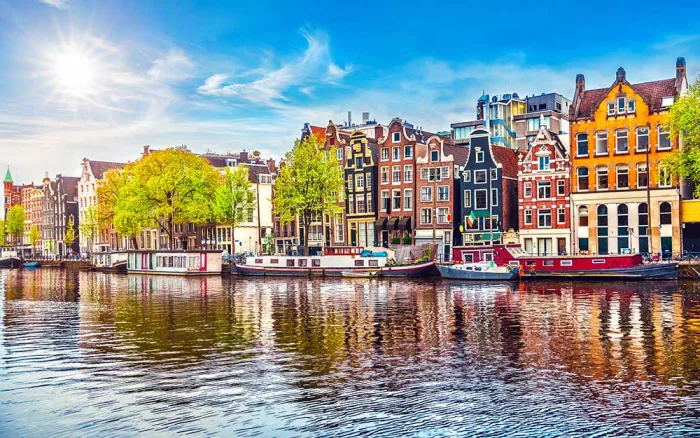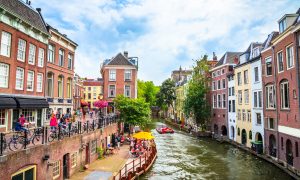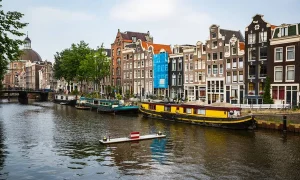In Europe manyimmigrantsOf the destinations.Netherlands and GermanyThey have always been two of the most attractive countries. Not only because of their well-developed economies, high-quality public services and generous welfare systems, but also because of the benefits they offer toOverseas Immigrationoffers diverse and relatively liberal policy options. So, if you're debating whether or not toImmigration to GermanyneverthelessImmigration to the Netherlands, this article will start withquality of life,visa policy,job openingrespond in singingEase of integrationFour key angles for a solid in-depth comparison.
I. Comparison of quality of life: freer in the Netherlands, more stable in Germany
The Netherlands: openness, diversity, relaxed pace of life
-
The Netherlands is one of the most LGBTQ+ friendly countries in the world, with a diverse culture and tolerant society.
-
The city is slower paced and encourages work-life balance.
-
Bicycle kingdom with clean air, compact cities and efficient commutes.
Germany: efficient, robust, strong infrastructure
-
Germany has well-connected public transportation and a high level of urban governance.
-
University is virtually free and the quality of public education is excellent.
-
Major cities such as Munich, Frankfurt, and Berlin have well-developed healthcare systems and a strong sense of security in life.
Conclusion: If you favor a free and comfortable lifestyle that embraces diversity, the Netherlands is more suitable; if you value institutional stability and efficient management, Germany may be more appetizing.
Second, the comparison of visa conditions: the Netherlands low threshold, Germany channel more
the Netherlandsskilled migrant(Highly Skilled Migrant)
-
Sponsored by employers, fast approval (usually 2-4 weeks), no language requirement;
-
The salary threshold is around €3,800-€5,000, which is suitable for IT, engineering and research talents;
-
Spouses are free to work and children receive educational benefits;
-
Provide "30% Tax Credit" to reduce the cost burden.
German Blue Card (EU Blue Card)
-
A work contract matching your qualifications is required, with a salary threshold starting at €43,800 per year;
-
The approval cycle takes about 8-12 weeks and academic certification is required;
-
May apply for permanent residence after 18-33 months;
-
Blue Card holders have certain rights of movement in other EU countries.
Conclusion: The Netherlands has easier visa applications and more user-friendly policies, while Germany offers more sub-category access in the academic/engineering field for professionals with a plan.
III. Comparison of employment opportunities: the German market is large and the Netherlands is more internationalized
German job market
-
Manufacturing powerhouse with global leadership in automotive, machinery, chemicals, biomedical and other fields;
-
The large number of small and medium-sized enterprises (SMEs) focuses on German-speaking competencies;
-
Low unemployment rate and strong job security, especially suitable for engineering and engineering professionals.
Dutch job market
-
High concentration of international companies, with English as the main office language;
-
Fintech, artificial intelligence, logistics and e-commerce are developing rapidly;
-
The startup atmosphere is rich for talents in IT, digital marketing, and innovation.
Conclusion: German opportunities are more traditional but on a larger scale; the Netherlands is for young, flexible professionals with a clear English language advantage.
IV. Difficulty of social integration: the Netherlands is easy to get started, Germany emphasizes local culture
Netherlands:
-
90% or above nationals fluent in English.recent immigrantsThe ability to live quickly and "without language stress";
-
Inclusive and culturally adapted to foreigners;
-
Learning Dutch is not compulsory, but long-term integration suggests mastering the basics.

Germany:
-
Most formal jobs require some German language skills;
-
The social structure is more stable but culturally conservative, and immigrants tend to "close their social circle" at the beginning;
-
It takes more time and initiative to integrate into the rhythm of German life.
Conclusion: The Netherlands is better in terms of language, culture and social inclusiveness, while Germany is suitable for those who are willing to put down deep roots and have plans to settle down for the long term.
V. Summarizing: Which one is better for you?
| comparison dimension | Immigration to the Netherlands | Immigration to Germany |
|---|---|---|
| quality of life | Diversified and flexible | Stable and secure |
| visa policy | simple and fast | Diverse paths |
| job opening | Internationalization-oriented | Traditional manufacturing powerhouse |
| Social Integration | English language access and friendliness | High language requirements and adaptation |
If you're looking for flexibility, a quick entry into the workplace, and don't want to be limited by language.Holland is a better choice.If you have solid German language skills, are well matched in your field of study and want to enjoy a larger job market with long-term stability.Germany is worth consideringThe







